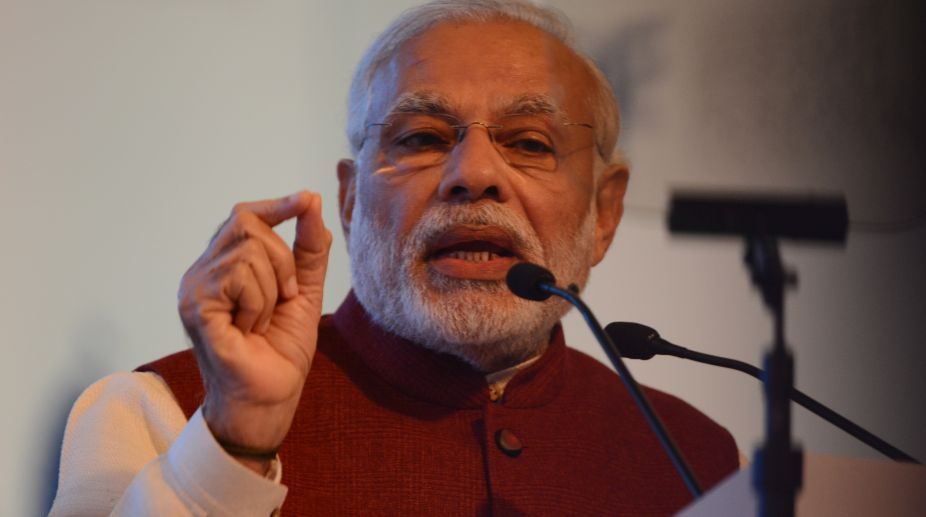The BJP must give credit to Muslims f or its resounding victory in assembly elections in the politically crucial state of Uttar Pradesh (UP). It may appear to be paradoxical as Muslims are normally believed not only to never vote for the BJP but also to do their best to ensure that its candidates never win by voting tactfully and en bloc. It is this very factor the BJP turned into its favour by steadily building a Hindu vote bank by arousing communalist sentiments from Muzaffarnagar riots and kairana exodus to raising the Shamshan-Kabristan and Eid-Diwali divide.
It is a matter of fact that as per the 2011 Census Muslims account for 19.3 per cent of the state’s population and if they vote ‘strategically’ may decide the fate of candidates in roughly 150 assembly constituencies. This has led many to project the myth of Muslims as a monolithic vote bank.
This time while the BSP and the SP-Congress combine remained busy crafting new strategies to woo Muslims, the BJP concentrated silently and singularly on consolidating non-Yadav backward caste and non-Jatav Dalit Hindu vote bank who had felt ignored during a decade of BSP-SP rule in the state. The BJP also generated a feeling among them that their deprivation was due to Muslims who enjoyed undue weightage during SP-BSP reigns.
The BJP not only gave these communities due representation in the party organisation, it even appointed Keshav Prasad Maurya as its State President. It also organised a series of ‘caste meetings’ and celebrated many ‘caste festivals’ to lure them.
The decision of not fielding any Muslim candidate was also a well crafted conscious choice and not because it could not find a single winnable Muslim candidate in the entire State, as claimed by it, despite the party's Muslim membership count having swollen to over 200,000. The BJP had calculated that despite its best efforts it would not be able to snatch any sizable number of Muslim votes from SP-BSP-Congress, for whom Muslims have been voting traditionally.
On the contrary by giving tickets to them it would not have been able to project itself as an exclusive Hindu party concerned with interests of the majority community and could not have sharpened attacks on ‘pseudo secular’ parties for their ‘minority appeasement’ and ignoring the majority.
The BSP and SP, on the other hand played the Muslim card very ineptly by fielding more than 150 Muslim candidates in the election. BSP chief Mayawati even cautioned Muslims not to split their votes. She repeatedly stated in different rallies that her party has given highest number of tickets to Muslims and thus they should vote en masse for the BSP as only it would be in a position to defeat the BJP with solid support of Dalits who constitute 20.7 per cent of the population.
To counter this, the SP and Congress forged an alliance to prevent split of Muslim votes. All this created an impression that if BSP or SP won the election Muslims would be over-represented and that actually went in favour of the BJP as Hindu voters in reaction solidly consolidated behind it.
The BJP’s game plan was made easier by some Muslim clerics like the Shahi Imam of Delhi’s Jama Masjid Maulana Ahmed Bukhari, Maulana Aamir Rashadi of the Rashtriya Ulama Council and Shia cleric Maulana Kalbe Jawad appealing to Muslims to vote for the BSP and another cleric Maulana Khalid Rashid Firangi Mahali extending his support to the Samajwadi Party and Congress alliance. Their appeals though usually have limited impact but they not only confused Muslim voters but also proved counterproductive as BJP also played the Hindu card more carefully.
The BJP also did not fail to recognise the importance of raising communally sensitive issues during the election campaign. It gave due importance to controversial issues like the construction of Ram Mandir, ban on triple talaq, closure of slaughter houses and prevention of Hindu exodus from Kairana in its manifesto making it amply clear that it was not averse to polarisation of Hindu votes in its favour as it was uncertain whether the development agenda alone would ensure its victory in the state.
The BJP was successful in falsely convincing voters from the majority community that both the SP and BSP Governments have unduly favoured Muslims and discriminated against Hindu in the state whether in the distribution of freebies like laptops or scholarships and even in compensating the riot victims.
In an election rally in Chauri Chaura the BJP President Amit Shah said that “They will ask your religion and caste first, if that doesn’t seem favourable to them, they won’t give you laptop.” The Prime Minister himself accused the ruling SP of discriminating between communities in Uttar Pradesh in distribution of land for kabristan and shamshan and supply of electricity during Holi and Eid and insisted that there should not be any discrimination.
Though these charges were found to be untrue, they succeeded in giving the message that the SP Govt. was working in a prejudiced manner against the Hindus.
Overall the BJP was successful in projecting SP, BSP and Congress as Muslim parties and itself as the only party that cares for Hindus. It also convincingly projected minority Muslims as a pampered lot and majority Hindus as aggrieved in UP resulting in creation of a brand new Hindu vote bank solidly standing behind it in reaction to the mythical Muslim vote bank. The challenge before the new government would be to keep the different communities united, which is sine qua non for the development of the state. These communities were, after all, pitched against each other by all political parties for their selfish political interests.
The writer is a Professor of Political Science at Aligarh Muslim University, Aligarh.











